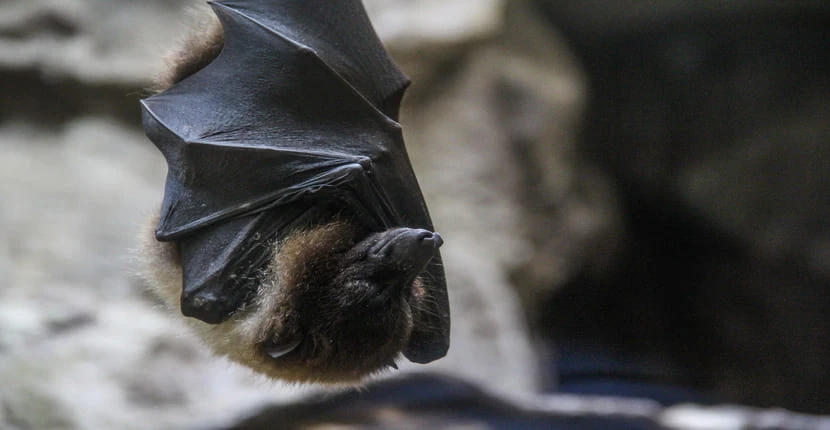
Bat Surveys in Carterton
Request a free quote for a bat assessment with our specialists todayAt Invasive Weed, we specialise in bat surveys in Carterton [zip] to support planning applications, land development, and conservation efforts.
Bats are legally protected in the UK, meaning that any construction, demolition, renovation, or tree removal projects must ensure they do not disturb bat populations or their roosting sites.
Our licensed ecologists provide Preliminary Roost Assessments (PRA), Bat Emergence Surveys, Hibernation Surveys, and Mitigation Plans, ensuring legal compliance and effective conservation.
For a bat survey in Carterton and across the UK, contact us today for a consultation.
What Is the Bat Survey Process in Carterton?
The bat survey process begins with an initial site inspection, where ecologists conduct a Preliminary Roost Assessment (PRA) to identify potential bat habitats and determine whether further surveys are necessary.
This is followed by field surveys and monitoring in Carterton, using specialist bat detectors, thermal imaging, and visual observations to conduct Emergence and Re-entry Surveys at dusk and dawn. During data collection and analysis in Carterton, ecologists record bat species, flight patterns, roosting sites, and environmental conditions to assess the impact on development.
Finally, a detailed report is produced in Carterton, outlining findings, legal considerations, and mitigation strategies to support planning applications.
What Types of Bat Surveys Are Available in Carterton?
Bat surveys include preliminary assessments, emergence and activity monitoring, hibernation studies, and mitigation planning with licensing support in Carterton.
These surveys also include:
Preliminary Roost Assessment (PRA) – A desk-based study and on-site inspection to assess potential bat roosting sites in buildings, trees, or structures.
Bat Emergence & Activity Surveys (BERS) – Conducted at dusk and dawn, these surveys involve visual monitoring and bat detectors to record bat activity and flight patterns.
Bat hibernation surveys – Specialised surveys conducted during the winter months to identify hibernating bat populations in caves, buildings, and trees.
Bat mitigation plans & licensing – If bats are present, we develop mitigation strategies (such as bat boxes, roost relocation, or habitat protection) and assist with Natural England license applications.
How Much Does a Bat Survey Cost in Carterton?
Bat survey costs range from £300 to £5,000+, depending on survey type, site size, and project complexity in Carterton.
A Preliminary Roost Assessment (PRA) in Carterton, the initial stage of a bat survey, typically costs between £300 and £600 in Carterton. If bats are present, further Bat Emergence and Re-entry Surveys (BERS) are required, costing between £800 and £2,500, depending on the number of survey visits needed.
More detailed hibernation surveys and Mitigation plans in Carterton can range from £1,500 to £5,000, particularly for complex development sites. Additional expenses may include licensing fees (£200–£500), mitigation measures (such as bat boxes), and follow-up monitoring (£500–£1,500 per visit).
Contact Invasive Weed to get customised pricing for bat survey projects in targeted biodiversity.
Is a Permit Required for a Bat Survey in Carterton?
Bat surveys are required under the Wildlife and Countryside Act 1981 and the Habitats Regulations 2017 in Carterton to provide strict protection for all bat species and their roosts, making it illegal to capture, handle, or disturb bats without a license.
Construction, demolition, or tree removal that affects bat habitats cannot proceed without an ecological assessment. If a bat roost is found on-site, a European Protected Species (EPS) mitigation license may be required in Carterton before development can continue.
We assist in obtaining permits and ensuring full legal compliance, guiding clients through licensing applications and implementing necessary mitigation strategies.
How Long Does a Bat Survey Take in Carterton?
Bat surveys take from one week to several months in Carterton, depending on survey type, seasonality, and project scope.
Preliminary Roost Assessments (PRA) in Carterton can be completed within 1–2 weeks, while Emergence and Activity Surveys require multiple site visits over a period of several months in Carterton, particularly if seasonal conditions apply.
Some species-specific surveys, such as Bat Hibernation Surveys in Carterton, can only be conducted during winter months (November–March).
What Are the Environmental Considerations in a Bat Survey in Carterton?
Bat surveys help mitigate habitat loss in Carterton, which is a key consideration with strategies such as installing bat boxes, creating artificial roosts, and establishing wildlife corridors to support bat populations.
Additionally, reducing disruption to bat activity in Carterton is essential, requiring measures to minimise light pollution, noise, and habitat fragmentation during construction. Compliance with conservation laws in Carterton is also a priority, ensuring that legal and sustainability requirements are met to prevent ecological damage and regulatory penalties.
Contact Invasive Weed to get detailed information on bat surveys in targeted biodiversity in Carterton.
We cover Carterton (Oxfordshire)
